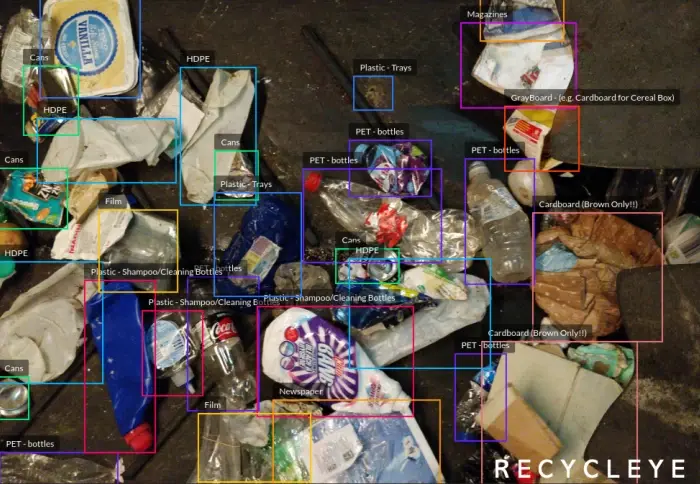Generally Productive Talks #4 - Ai and Recycling
- John@JPproductservices.com
- Apr 17, 2023
- 4 min read
Introduction
It seems like every day there are new environmental warnings, all caused by human activity. Recycling is one way we can all make a difference and help lessen our negative planetary impact. However, recycling poses many challenges, and how much we can personally do is suspect
Ai will dramatically impact recycling, its ability to conceive, evaluate and implement solutions we humans cannot begin to imagine is astonishing and will grow with time. It is a technology that if used correctly could help solve the problem we have made and if we are lucky, do so without adding to the suffering our own solutions do today
The Past
In ancient times, recycling was an important exercise, as we lived closer to nature and more hand-to-mouth lifestyles, it was vital to use and reuse resources as much as possible. Materials like cloth and paper were collected after being used for more uses rather than just discarded. However, as humanity progressed and abundance of goods became more normalized, disposability became a status symbol, and attitudes changed
Modern interest in recycling did not begin until Rachel Carson released 'Silent Spring' in 1962, a groundbreaking work that challenged conventional wisdom about the safety and efficacy of chemical pesticides. It led to an awareness by some of the negative sides of modernization and the lifestyles many had achieved through it
Recycling remained a fringe interest with little political power until the 1987 release of the UN's Brundtland Report. Its findings stated that Global Cooperation was needed to address the urgent action needed on tackling Environmental Challenges. However, progress was slow as technology was not in place to make the change easy and frankly as there was no profit in it, corporations and politicians continued to ignore or even work against it
Some progress was made, thanks to pressure groups, true believer politicians, and technological innovation that took recycling from zero in 1960 to almost 50% globally by 2022, a 60-year uphill journey that continues today
Ai has not been able to contribute considerably to the cause until recently, in the 2000s it was used to aid in material identification and sorting, while in the last 10 years, it has been increasingly integrated into waste management to improve efficiencies across the board
Today
Recycling is being increasingly developed, thanks to pressure from all sides and corporations accepting its necessity as a result, along with technology offering better solutions, Ai chiefly among them
Currently, Ai is being used to:
Optimize Processing - especially to Identify and Sort based on Materials but also classify Quality levels
Predict Maintenance Requirements
Optimize Collection Routes
Waste Reduction in Manufacture
Ai is also beginning to be used to promote the Circular Economy through data analysis and identifying reuse vs recycle, these advances are helping to encourage reuse while also improving our ability to recycle and lessen the impact of waste, but there is still a long way to go to reverse the damage already done
The Future
After a slow start, Ai's impact on recycling is picking up pace and is about to explode as its abilities match perfectly with the needs of the space, at the same time as the world is becoming ready to adopt greater change after the impact of efforts so far are becoming all too real
There will be many changes in the years to come, some that can be expected include:
5 Years
Advancements are expected to be improvements on what is being done today, while also following greater trends in society of customization and personalization;
Smarter Sorting - speed, quality, and efficiency will increase consistently
Predictive and Implemented Maintenance - sensors monitoring equipment will improve efficiency
Personalized Recycling - smart refrigerators, smart meal planners, and smart recycling bins will all aid in creating personalization within the space

10 Years
Technology will take over most operations within the space;
Robotic Recycling - automated systems will operate most stages overseen by humans
Blockchain for Recycling - monitored material tracking through the entire recycling system will enable traceability and reduce fraud that occurs currently
Energy Recovery - utilizing the process itself to generate power to continue the process is possible and is likely to be implemented by this point to reduce waste energy and waste materials
20 Years
While hard to determine with any certainty, many dramatic advances should be possible by this point;
Closed-Loop Systems - circular supply chains controlling use, reuse, and recycling should be implementable with Ai controlling and optimizing material flow and reducing waste
Self-Learning Systems - Ai systems will be at the point that they can run independently and improve iteratively to create a continual improvement loop driving innovation and sustainability in the entire supply chain process for product lifecycles
Ai-Enabled Policy - through years of refinement and increased adoption by all areas of life, it is possible that by this point Ai will be used to inform policy decisions making data-driven fully justified decisions to advance and optimize the process on a global scale

My thoughts:
For a long time in the area of Recycling the world dropped the ball, the response of governments has been terrible as the desire for continuous growth and corporate pressure kept progress back in the interest of profits. But I believe that if allowed, Ai can solve this area's challenges. My question is if it will be and if it will be in time to make a deciding difference
The possible scale of advancement in the short, medium, and long term gives me hope, I believe if allowed the timeframes for achievement mentioned can be reduced and the world helped quicker and more significantly
This area, more than most is one society would be willing to hand over operation fully to Ai, people do not want to be involved they just want to know it is being done and Ai won't mind getting dirty to fix it...












